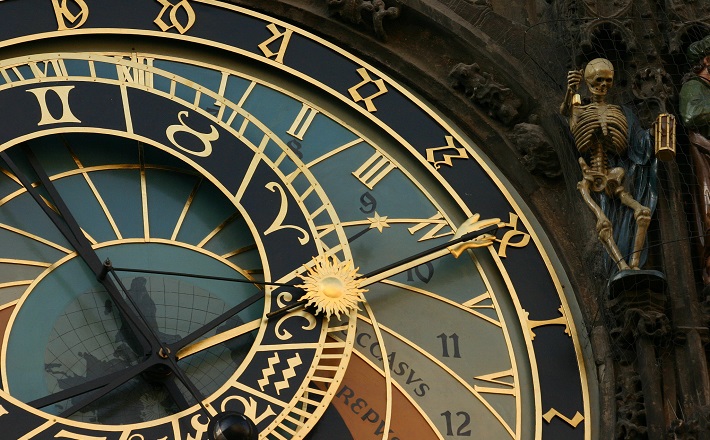Commentary on Psalm 122
It would be hard to imagine a more poignant, desperately needed, and timely appeal than Psalm 122:6: “Pray for the peace of Jerusalem.”
Situated at the epicenter of world tensions, any peace that prevails in Jerusalem today can be chalked up to the transient success of armed security, and is as fragile as the temperament of the next shooter, stabber, or suicide bomber.
Then Christians get derailed over precisely how to pray for Jerusalem’s peace. Some are Zionist sympathizers and it’s pretty simple; others see Israel as an illegal occupation, and Jerusalem as the nagging symbol of injustice. But couldn’t we join hands in this one prayer, not over-envisioning what that peace would actually look like or whose flag would be flying? Jesus, after all, grew up chanting this Psalm, and when he arrived on pilgrimage, he wept over the city and lamented that “If only you knew the things that made for peace.”
Psalm 122 is one of the Psalms pilgrims would sing on their way to and upon arrival in Jerusalem for the great festivals of Passover, Unleavened Bread, and Tabernacles. They weren’t vacationers, or sightseers, or highly motivated people of faith. It was decreed that they make these annual pilgrimages. We blanch over the prospect of religious decrees or days of obligation in worship; but for Israel there was a joy in the discipline. Not, Darn, we have to go to Jerusalem now? But, We get to go to Jerusalem now!
“I was glad when they said unto me, ‘Let us go … ‘” We almost sense a child at play or doing her chores when mom and dad call them away from the drudgery and triviality of life, declaring now is the time to go to the most magnificent, holy, spiritual place on earth, where we will be stunned by the glory of the temple, where we will see relatives and friends we’ve not seen since last pilgrimage (mentioned in verse 8!), and where we will be blessed by our Lord.
We can picture the physicality of this Psalm. “Our feet have been standing within your gates.” Imagine your feet, touching the ground, dusty, weary, arthritic, callused, but within those gates, visible in renovated form to tourists today. The act of walking is worshipful obedience; we should ponder our feet having gotten us there. Or perhaps the words of Mother Pollard, an elderly woman, refusing the offer of a ride during the Montgomery bus boycott: “My feets is tired, but my heart is rested.”
In your mind’s eye, look with those pilgrims at the walls, the gleaming stones — and these were people who came from tiny, colorless villages with what we’d call shacks and lean-tos. Verse 3 speaks of the city being “bound firmly together” — which is more than admiration of the masonry. The adjective used here is never otherwise used to describe construction, but normally speaks of fabric, or of people. This city binds the people together. What else could?
And so, the mood is one of gladness, and affection. And of course, love. As if speaking to the city as a person, which for them it very much was, verse 6 says “May they prosper who love you.” The Hebrew is a bit ambiguous. Robert Alter renders it, “May your lovers rest tranquil.” There’s love, and rest — and a playful use of language. “Rest tranquil” is yishlayu, which is alliterative of yerushalayim, “Jerusalem.” And what they seek is “peace,” shalom, which is already in the root of the city “Jerusalem.” The Victorian biblical scholar A.F. Kirkpatrick suggested that “the Psalmist prays that the nomen” (“Jerusalem,” the city of peace) “may become an omen.”
The Psalm clarifies that the pilgrims came to Jerusalem for judgment, and to give thanks. We might shrink back from the place of judgment. But we misunderstand. The Hebrew word rendered “judgment” is mishpat, and mishpat is when the neediest, the marginalized, those nobody else cares for are cared for. God’s justice isn’t blind, like that statue outside the U.S. Supreme Court. God isn’t an unbiased, fair judge. God sees, God loves, God is entirely biased in favor of each pilgrim, each one of us. This God is literally dying to give us more than we’d dream of.
And so, like them, we give thanks. For Israel, “thanks” would have been the todah sacrifice, something tangible, something precious you offered to God, to demonstrate your immense gratitude to God, and your intense trust that your future was in God’s hands. Gratitude is the secret of the faithful life, as it banishes guilt, regret, anxiety, and self-centeredness. We give thanks in worship, and take that gratitude back home and keep it up.
One thing we can be thankful for is that our prayer for the peace of Jerusalem will be answered with a ringing affirmative. God has promised this. Revelation 21 envisions a holy, gleaming, beautiful, and peaceful New Jerusalem, where God is the city’s light, and the love and fellowship aren’t annual but constant.
In his forthcoming Brazos commentary on the Psalms, Jason Byassee writes this on Psalm 122: “Look at the psalmist’s great desire for Jerusalem. The church says ‘yes’ to this desire. And yet pilgrimage is about more than a long walk. It is about the soul in community with others and God. If this costly and dangerous journey to the navel of the world is this glorious, how much more glorious must be the costly and dangerous journey that is our entire life and afterlife toward the vision of God?”


November 27, 2016